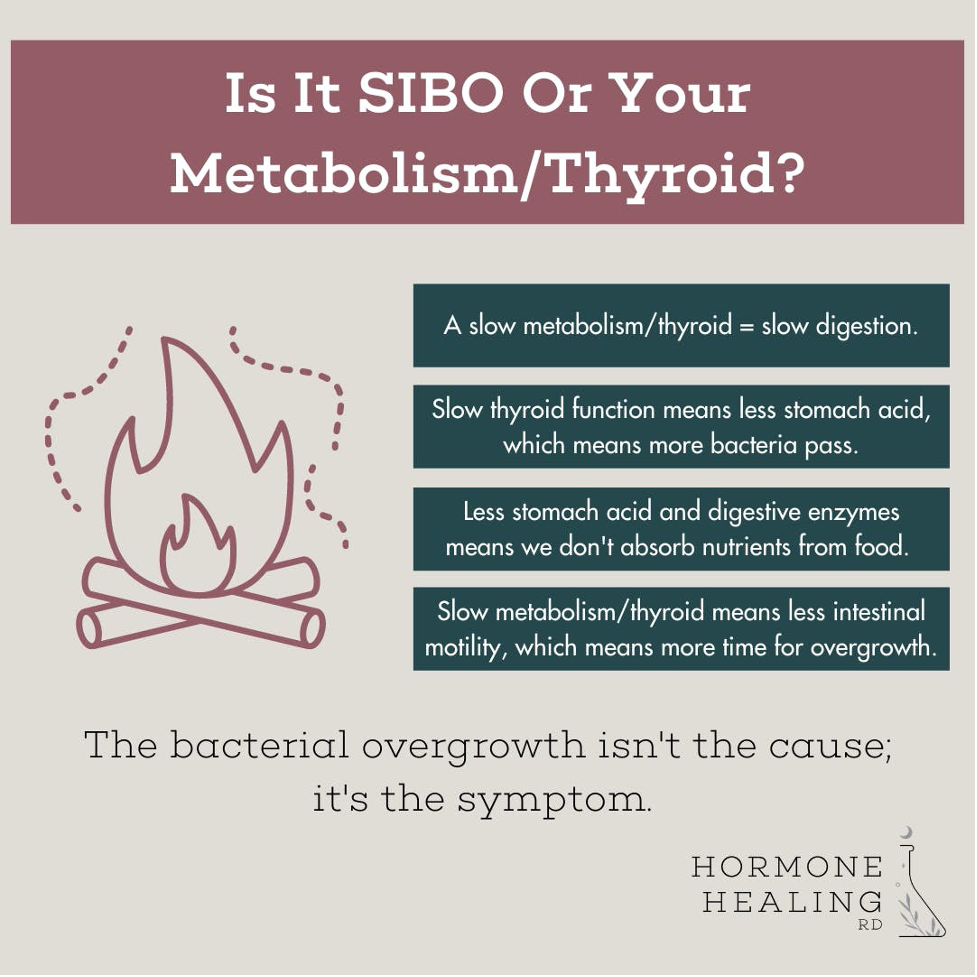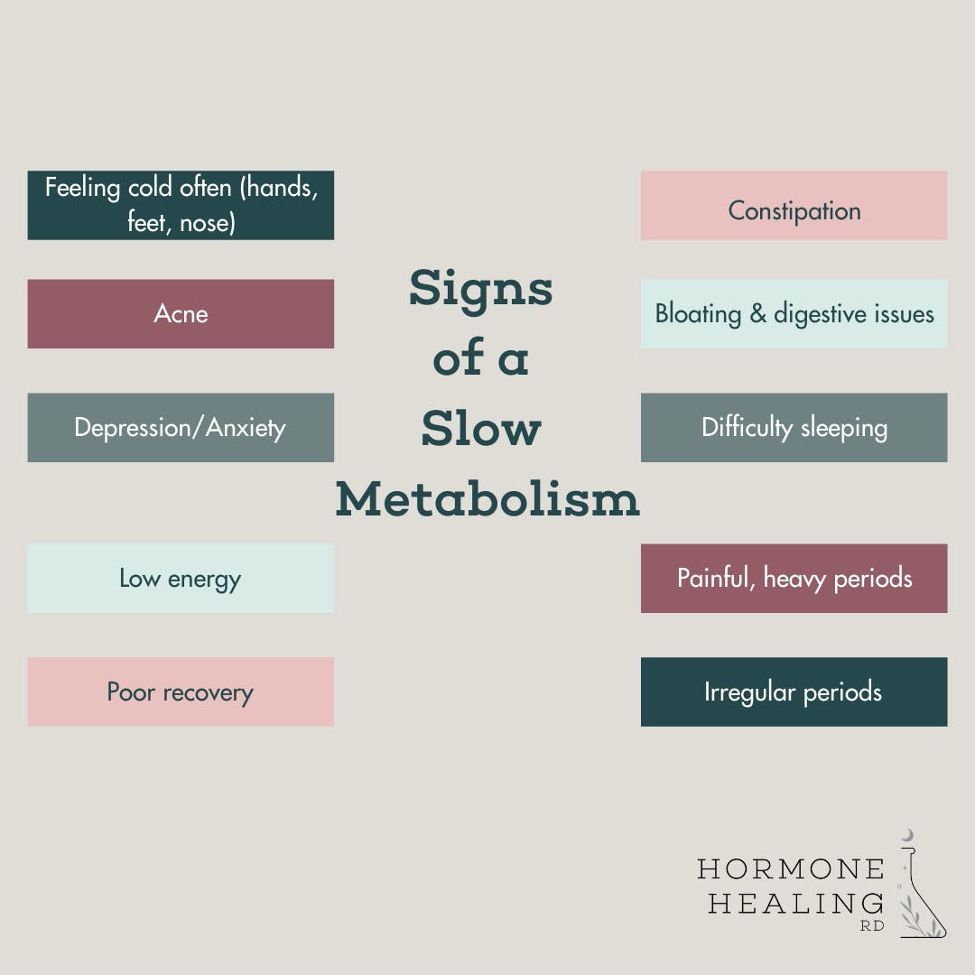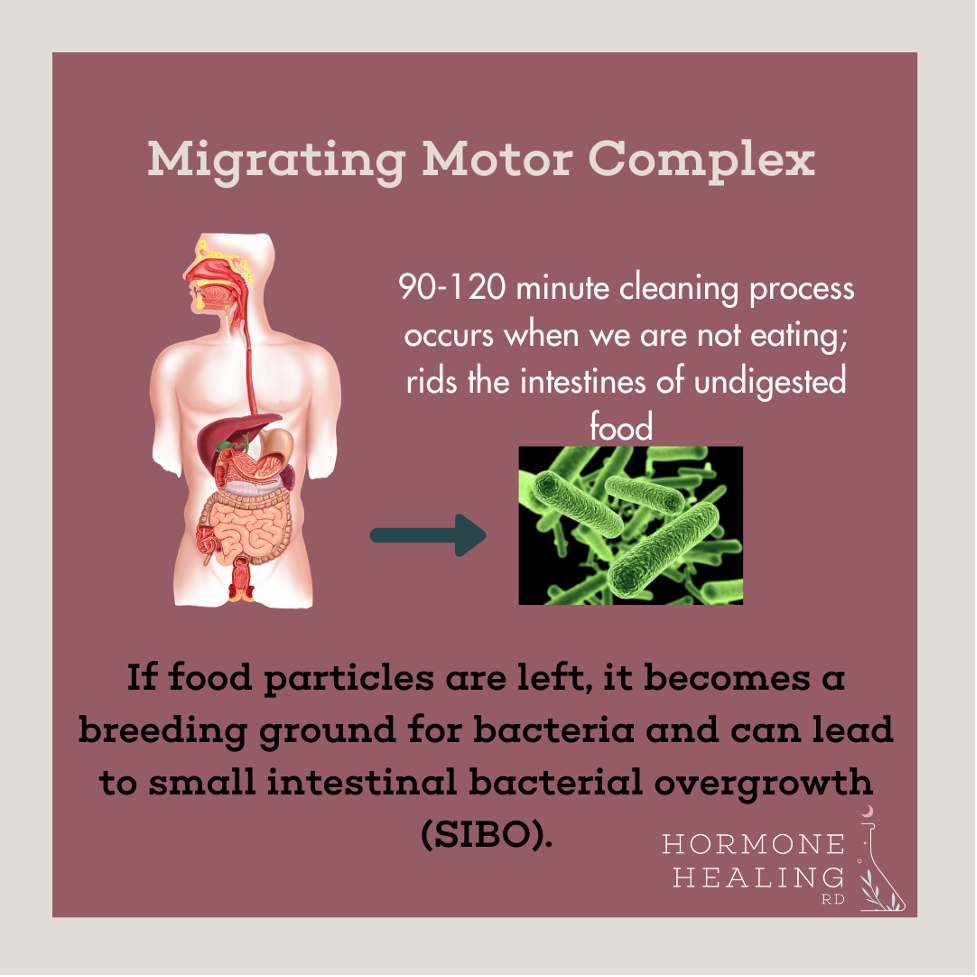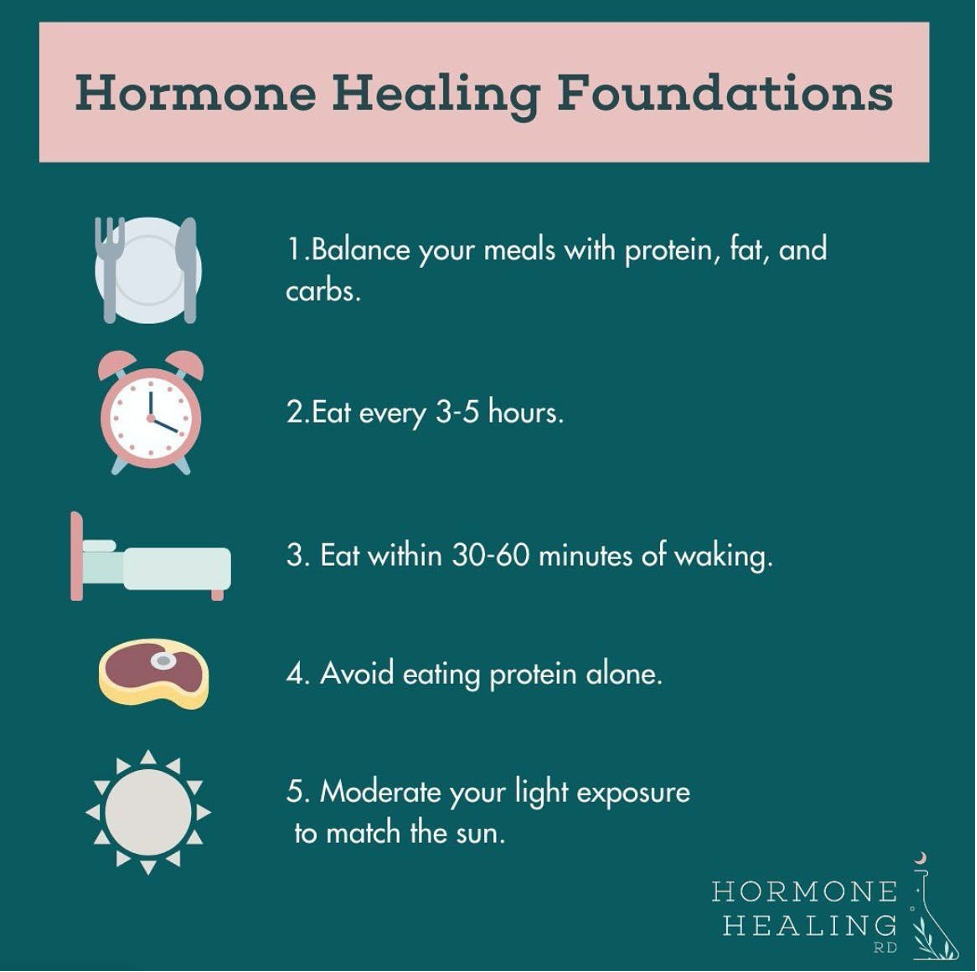SIBO or Small Intestinal Bacterial Overgrowth is a condition where you have too much bacteria present in the small intestine. This leads to excessive bloating, especially after meals. It also causes constipation and a host of other health issues since digestion is essential for our overall health. So, what does SIBO have to do with our metabolic or thyroid health? The answer is everything! SIBO is not a root cause of health issues but is a symptom of a deeper problem.
I heard Josh Rubin from East West Healing discussed this on a podcast a few years back, and I loved how he explained it:
“Small Intestinal Bacterial Overgrowth might as well be called Self Induced Bacterial Overgrowth. The bacteria are not at the root of your discomfort.”
-Josh Rubin, East West Healing
This doesn’t mean that SIBO or digestive issues are your fault. What I want you to gain from this is that you can’t just focus on taking supplements or antibiotics to treat the SIBO. You have to also look at how it even came about in the first place. Let’s take a look at how our metabolic and thyroid health impacts our digestion and why they are at the root of SIBO.
Slow metabolism or sluggish thyroid leads to less stomach acid and digestive enzymes.
Metabolism is how you sustain life. When metabolism is slow, everything else slows down. Because thyroid hormones control metabolism, there is a gut-thyroid connection between hypothyroidism and poor digestion. Therefore, when digestion slows down, this means we have less stomach acid (and often more diluted, making it less effective) and digestive enzymes. The first issue with this is that it leads to bacteria that would usually be killed by stomach acid to pass through to our small intestine. This, in and of itself, leads to overgrowth, which can also lead to pathogens and parasites getting through. Our stomach acid is our first line of defense in protecting us from harmful invaders.
The second issue is that without adequate stomach acid and digestive enzymes, we won’t break down our food properly. This means we can’t extract the nutrients our bodies need to thrive from our food and lead to blood sugar issues and nutrient deficiencies. This also means we have partially broken-down food particles that will sit and ferment in our gut, leading to, you guessed it–more bacteria overgrowth. Do you see how metabolic health can be the root cause of SIBO yet?

Slow metabolism or sluggish thyroid means less intestinal motility.
Altered gastrointestinal (GI) motility is seen in many pathological conditions. Intestinal motility is what moves the food we eat through our digestive tract. Reduced motility is one of the risk factors for the development of a SIBO. Hypothyroidism is associated with altered GI motility, especially constipation (build-up of partially digested foods and stool), and contributes to SIBO. This means more fermentation and an increased chance for bacteria to overgrow and lead to more imbalances and inflammation in the gut.
To keep things moving, we need an optimally functioning thyroid and good digestion that allows us to break down our food thoroughly. This is why I am always talking about using nutrition to minimize stress within the body. Stress leads to compensation, which slows down thyroid function and causes many issues, including digestive problems like SIBO.
How do I know if my metabolism is slow?
Since your metabolism is involved in all of your bodily functions, you can guess that it will be the cause of so many symptoms. A slow metabolism impacts how you break down your food and how quickly it moves through your digestive tract. If slow metabolism is causing you to have sluggish digestion, then you are probably experiencing bouts of constipation. Is your body able to use the energy you eat to generate heat or are you frequently cold? Maybe you have a diagnosed thyroid issue, or you suspect one. Do you tend to have PMS and period problems? Do you struggle with acne (a sign of insufficient detox capacity)?

How does your digestive health determine meal timing?
Individuals who have lots of stress in the gut can eat less frequently (around every 4-5hours). More often than not, this is accompanied by constipation. Your migrating motor complex (MMC) is probably to blame. It is a 90 – 120-minute (1 ½ to 2 hours) process that occurs when we are not eating. It cleans the intestines to get rid of any undigested food particles. If the food particles are left in the intestines, it becomes a breeding ground for bacteria and can lead to small intestinal bacterial overgrowth (SIBO). If you feel like you do not digest well and have to wait a long time between meals, you probably have a sluggish thyroid and metabolism, which slows down everything else. Sluggish thyroid or hypothyroidism causes slower digestion, detoxification, and hormone production. Everything is affected! If our digestion slows down, then our MMC is going to be slower.

How Do We Support a Healthy Metabolism/Thyroid?
First things first, you may need to eat more frequently and eat enough. I go into greater detail about this in my meal frequency blog; check it out. Eating more often goes back to a cellular level in the body–our metabolism. When the engines in our cells start to slow down, what can help repair them? The answer is reducing stress, eating enough balanced meals, and eating more frequently. Eating breakfast within the first 30 to 60 minutes of waking up is a great way to wake up the digestive system. The improvement in the engines’ functions in our cells can help support healthy digestion and hormones.
The key to a healthy metabolism is to focus on your foundations:

Obvious hypothyroidism is associated with bacterial overgrowth development. Excess bacteria could influence clinical gastrointestinal manifestations. Intestinal motor dysfunction associated with hypothyroidism could predispose to bacterial overgrowth. Increasing meal frequency can be beneficial to some who experience thyroid dysfunction and slow metabolism. I hope this got you thinking about how your metabolic health could be impacting potential digestive issues, whether you’re dealing with them now or in the future. Want to see how your metabolism is faring? Check out our Master Your Minerals course, in which you’ll learn your metabolic type and how to best support your body based off your HTMA results.
